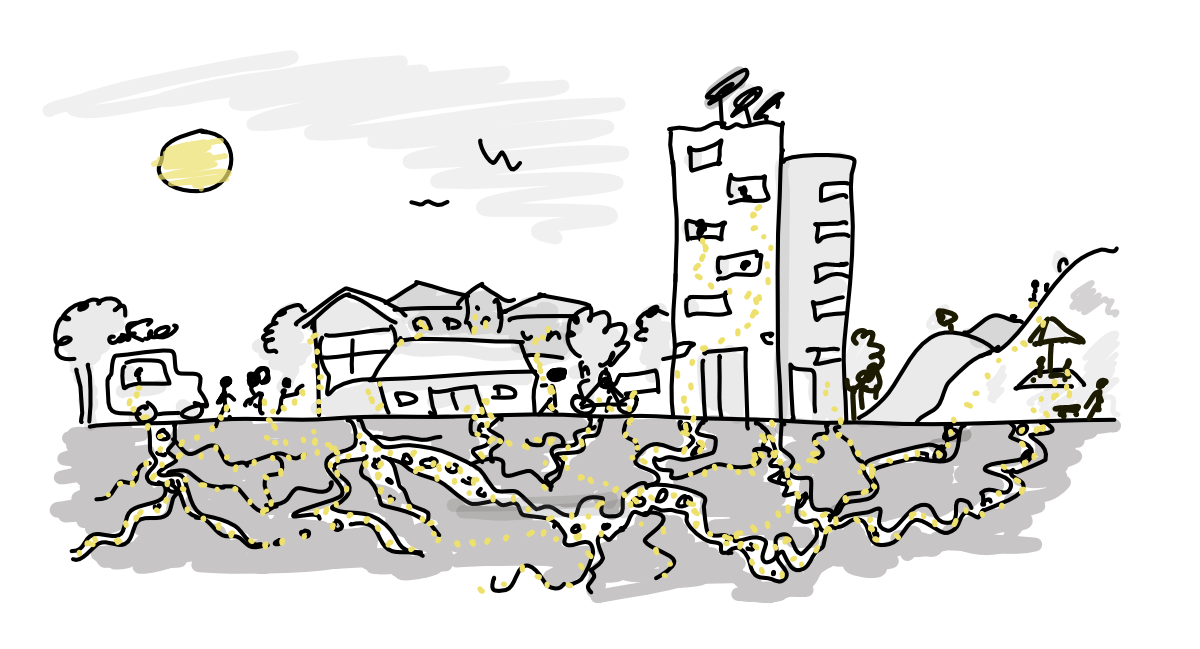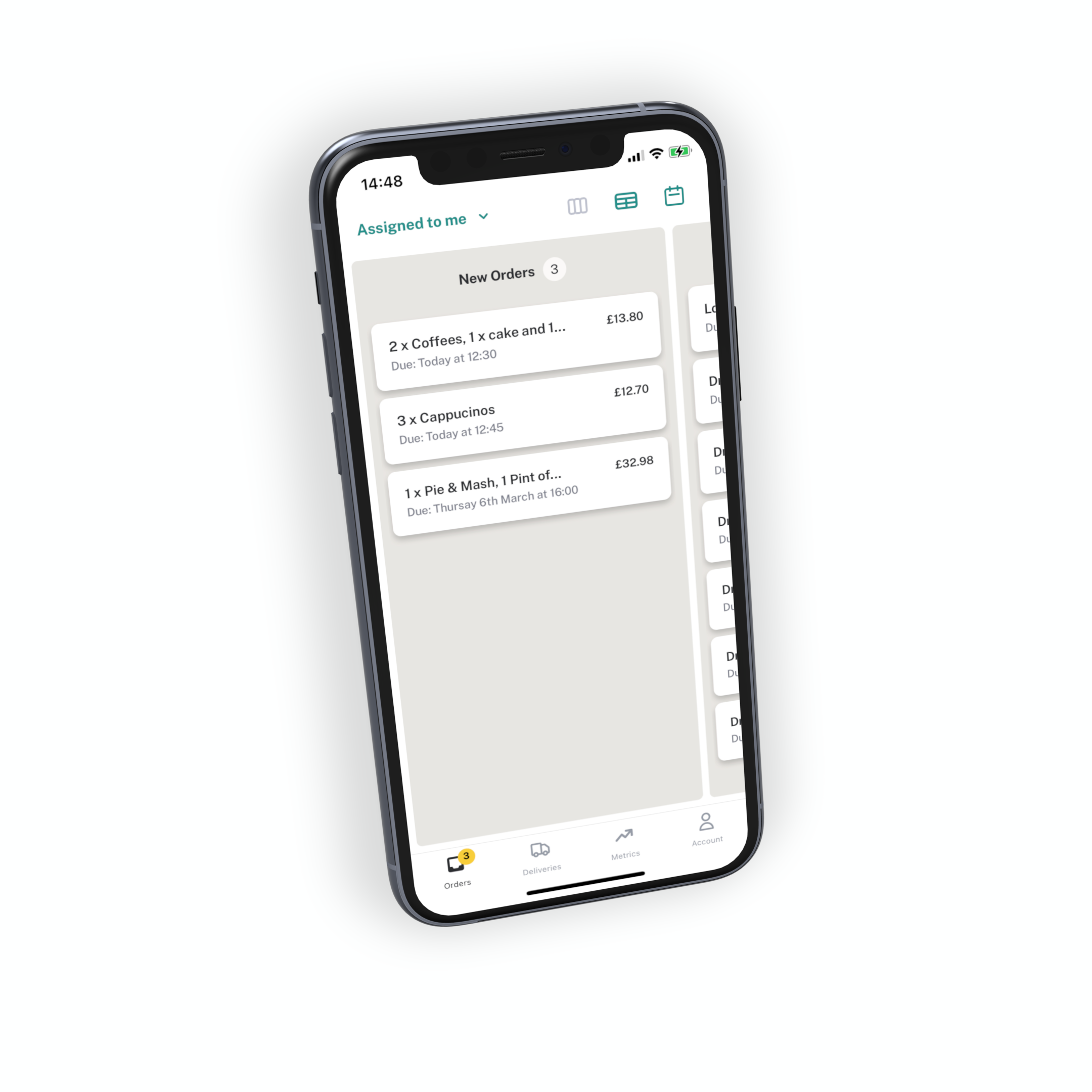Why your town needs near-commerce
COVID-19 has triggered a massive digitisation of our local businesses and services. But it's reactive and patched together. Near-commerce solves this.

TL;DR - Local businesses are rapidly losing ground to online giants due to convenience, price and simplicity of use. Yet they have unique strengths that make them special: people, brand, location, experience and community.
Ordaloca fixes this. Using the app and website, customers get to shop locally with ease. Businesses and services join and get access to simple tools they need to operate locally for free. Our job is to connect, enable and get out of the way.
Why? Because local business is fundamental to local culture. It's key to greener futures. And we want to live in places that are fun, interesting and connected.
COVID-19 has shifted the way we all live. One key area where life has changed is the nature of commerce in our towns and cities.
For most businesses it’s been a complete U-turn. Those that adapted fast have survived and in some cases thrived. Yet, there are many that have already closed or will close soon.
For Louis and I this sea change in behaviour seemed, at best, probable a few years ago. The acceleration in the past 12 months, has now made a permanent change inevitable.
Our vision of the future is a large scale, digital platform for local commerce.
The rapid digitisation of our high streets and local services is underway now. There is no stopping it.
Many would like to go back to the way things were before. This won't happen. Neither should it in our opinion.
To protect our local businesses and communities from disappearing, this change is essential.
A massive shift in 12 months
As lockdowns removed the ability to trade local businesses turned to the Internet:
- setting up e-commerce stores
- posting menus on Facebook
- using delivery platforms like Deliveroo, Uber Eats, Just Eat etc
- sharing Google forms on WhatsApp
- using web ordering systems provided by their EPOS systems
- running deliveries themselves
- touch-less ordering at tables
- QR codes galore…
This made it possible to keep the wolves from the door and operate even under the harshest of conditions. Many businesses prospered and customers have adapted and often enjoyed the experience.
Streets have turned into dining spaces. Local businesses are making deliveries. Fledgling businesses are popping up as they tap into the new possibilities.
Lockdowns could have collapsed local economies. The Internet has enabled many local businesses to survive. Customers have maintained a semblance of normality.
For everything else there was Amazon.
Is this the future?
So, what we know is that connection to each other via the Internet is crucial. Social networks, e-commerce, payments systems etc all combined to get us through.
Many of the solutions mentioned above worked very well as a stop gap. They were sticking plasters.
It’s important to remember that the current solutions solve a different set of problems.
They are not long-term solutions to the fundamental restructuring of local commerce.
For example, e-commerce platforms are for selling products to the whole world. Especially marketing via search engines, remote payments and shipping deliveries using couriers. They have been that way since I started at Waterstone’s Online in 1998.
Yet as a local company, your customers are at the end of the road. You don’t need landing pages, you don’t need SEO, you don’t need international couriers. You have a set of problems unique to being local.
As a customer, this problem has been obvious over the last 12 months. It’s hard to find companies nearby. Every business has a bespoke solution. And all too often what is available doesn’t work.
For many businesses there are more problems:
- they are paying too much money for tools
- they don’t have the right digital skills (or time to learn them)
- they are struggling to manage their available staff resources and time
- they haven't time, money, or expertise in online marketing
- outsourcing to large 3rd party delivery marketplaces is expensive
It was a stop gap only.
It’s important to remember that the current solutions solve a different set of problems.
The future is near-commerce
This shift has been on the cards for a while. For a few years Louis and I have been working on a concept that we call Near-Commerce.
Our vision of the future is a large scale, digital platform for local commerce.
In the same way social networks connect us, this is a commerce network at the local level. It’s a big underlying digital infrastructure that everyone can hook into. I like to think of it as mycelium for towns.

Using local businesses must be easy and convenient. It needs to be as simple as using any major platform. So we have built a beautiful mobile app and are launching the web version soon.

For businesses, it means having the tools needed for running any type of business at a local scale. Whether you sell clothes, coffee, haircuts, yoga lessons or experiences. Using the Ordaloca app and website you can hook in to the network, set up and get going, for free. We are working on integrations to existing systems too.
For young entrepreneurs it means having all the tools you need to get up and running fast. It means instant access to your local market without all the typical overheads.

For B2B businesses it means making it easy to join the network and integrate services. From providing green deliveries, to recycling collections. Connecting businesses to each other opens opportunities for healthy local economies.
For everyone, from individuals to councils, we want to make important data available to answer important questions. What are people looking for? Can we create circular businesses? Are there local job vacancies? Can we pool our deliveries and reduce carbon emissions? Do we need new physical infrastructure? It will expose opportunities and highlight areas for improvement.
The right business model
Our initial plan for revenue is simple. There will be a low, fixed transaction fee shown to the customer and added to each order. That’s it.
This means all businesses can get access to the platform and tools for free. It makes it viable too as it scales where our costs scale (e.g., paying for map views, address look-ups, server costs etc).
We then have a plan to reduce the transaction fee further as the platform scales. I will write about this soon.
Our aim, is to create a new, long-term, profitable, social benefit business model.
Like mycelium, we take a portion to sustain ourselves to keep the network strong. We're using nature's playbook for building healthy ecosystems.

How to get involved
We’d love to hear from everyone but especially if you:
- run a business and would like to us to help you set up in your area
- want to install the beta app as a customer and give honest feedback
- have services that you would like to integrate into Ordaloca
- work in the public sector and would like to learn more
- you want to work with us to build the future of near-commerce
Let’s create the next generation of towns and cities that work for us all.
Find us on Twitter @ordalocahq, @jimhilluk, @louisgillies or email [email protected]
